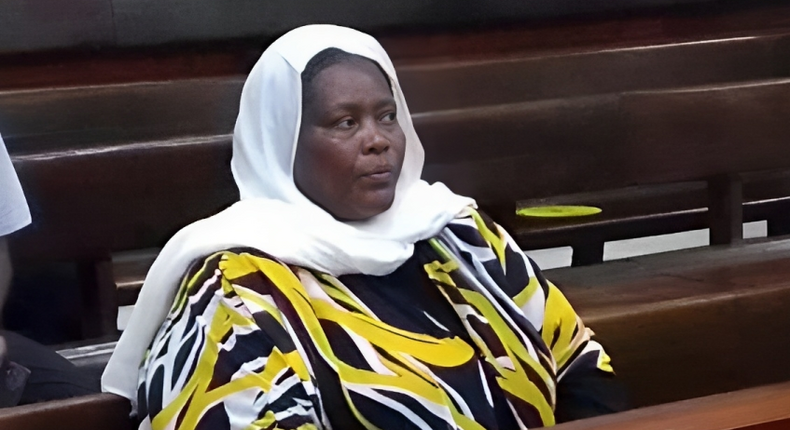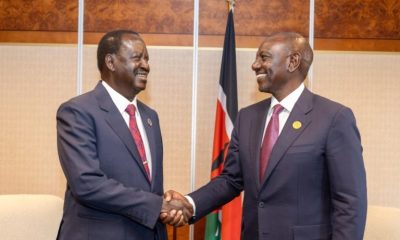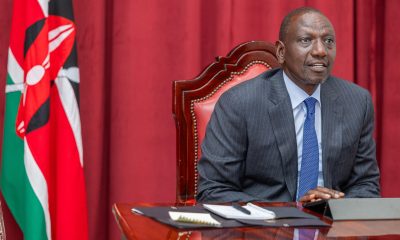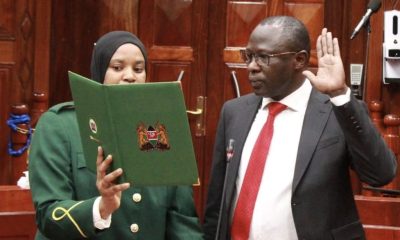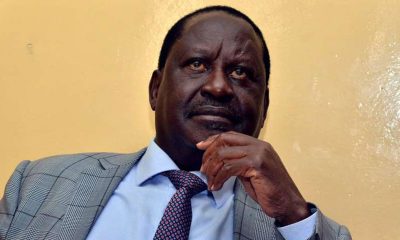The raging multi-billion-shilling oil saga that has sucked in the Ministry of Energy and Petroleum, some marketers and a little-known importer took a dramatic twist after a senator sensationally claimed that Sh17 billion was withdrawn from government coffers.
The self-proclaimed people’s watchman, Busia Senator Okiya Omtatah alleged that the Sh17 billion used to finance the purchase of the controversial oil had been sneaked into the 2022/23 budget by the Ministry of Energy and Petroleum and later withdrawn.
He said the genesis of the controversy started in the 2022/2023 financial year when Parliament approved Sh5.9 billion for the ministry out of which Sh5.2 billion was to be raised through the ministry’s operations.
The balance of Sh732 million was to be sourced from the Consolidated Fund as provided for in 2022/2023 estimates of recurrent expenditure for the year ending 30th June 2023.
“However, in total, some Sh42,965,290,402 instead of the Sh732 million was unconstitutionally withdrawn from the Consolidated Fund without the authority of Parliament and spent on subsidies to private financial enterprises. The beneficiary enterprises are not named.”
Omtatah further claimed that Parliament then passed an inflated budget of over Sh43 billion, which was an increase of 5,836pc contrary to Article 223 of the Constitution which limits such deviation to a maximum of 10 per cent of the sum appropriated per programme.
“The money was on unnamed and mysterious subsidies to private financial enterprises as per the statement of actual revenue gazetted on October 6, 2022, by the then Treasury CS Ukur Yattani through Gazette Notice No. 12580,” he added.
The ministry withdrew Sh16.6 billion in September 2022 for the unnamed subsidies to private financial enterprises.
“As per the statement of actual revenue and net exchequer Issues gazetted by Prof Njuguna Ndungu, the CS Treasury, vide Gazette Notice No. 9734 of July 13, 2023, the ministry withdrew from Consolidated Fund some Sh17, 224,718,632 at the closure of the 2022/2023 financial year for subsidies to private financial enterprises,” the senator alleged.
In a signed press statement backed with extracts from various gazette notices and supplementary estimates for the recurrent expenditure, Omtatah claimed this is the money that was used to buy the contested oil which is now being purified.
He challenged Energy and Petroleum CS Davis Chirchir to make full disclosure about how the Sh17 billion withdrawn by his ministry from from consolidated fund had been used.
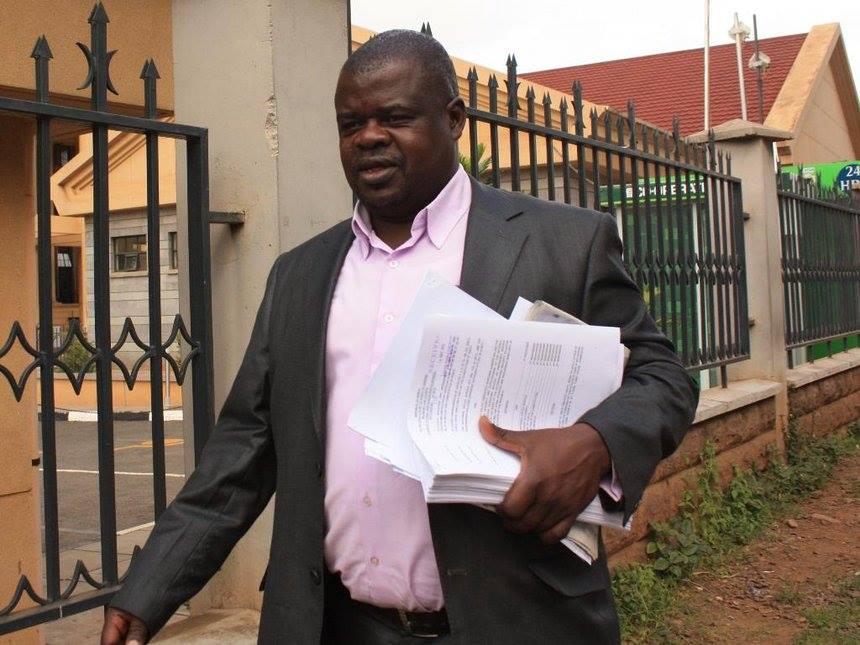
The senator claimed that an oil importer involved in the Sh17 billion oil saga was a private financial enterprise that was funded by the ministry.
The matter came to the fore when a little-known businesswoman, Anne Njeri claimed she had been abducted and her life threatened when she went to the Directorate of Criminal Investigations to report that the cargo had been hijacked.
Critics have since fingers at her, saying she had been used as a front in the deal and insisting that although she had been in the oil import business for many years, she had no business dealings with the ministry.
According to her handlers, Njeri first met Chirchir last week so as to secure the 100,000 metric tonnes of diesel.
Njeri claimed the CS told her the oil belonged to Galana Energies, one of the firms involved in the controversial Government-to-government oil importation deal, and advised her to go to the DCI headquarters.
It is then she claims was seized by unknown people and held for 120 hours only to be released at night in Nyayo Embakasi estate in Nairobi.
She is now expected to appear before the National Assembly Committee on Energy on November 22 to shed more light on the deal. Njeri says she will attend and promised to expose the people who allegedly seized her shipload of oil.
When the saga erupted, Chirchir admitted that he had met the businesswoman but disputed her claim to the oil, explaining that her company was not among the oil marketers licensed by the government.
On Thursday evening, Chirchir had explained how the government had to resort to drastic measures to save the country from an existential threat to its security on account of lack of dollars and outstanding subsidies owed to oil marketers.
According to the CS, the situation then was so bad that there had been incidences of petroleum shortages at retail stations in some parts of the country.
At one time Chirchir had warned that “the country teetered on the brink of shutdown due to a national-wide petroleum shortage.”
This is what drove the government into putting out a tender on March 1 this year inviting international oil marketers to bid for the supply of petroleum products on a 180-day deferred payment.
He explained that the G to G oil deal had saved the country from the crisis that was initially created by 130 oil marketing companies as they moved from bank to bank in search of dollars to finance their purchases.
Following allegations by Opposition leader Raila Odinga that the deal was a sham, the oil marketers involved put up a paid-up newspaper advert to state that before the deal with Saudi Arabia and United Arab Emirates-state-owned companies, there had been an artificial shortage of dollars.
This scarcity has since been cured because oil marketers no longer need to look for the foreign currency since they paid for all their products using the shilling.
“Given the requirement for prompt payment for fuel in dollars, a situation emerged where all the (oil marketing companies were chasing very scarce dollars, creating a speculative bubble in the forex markets.”
President William Ruto also waded into the saga, defending the G-to-G deal as aboveboard, transparent and innovative, adding it made a great difference.
“If we hadn’t been innovative, we would have driven the country to more subsidies and confusion,” he said.
Below is Okiya Omtatah’s dossier of the controversial oil deal to the press.
Sen. Omtatah's take on the Kshs. 17 Billion Fuel Import
Kenya Insights allows guest blogging, if you want to be published on Kenya’s most authoritative and accurate blog, have an expose, news TIPS, story angles, human interest stories, drop us an email on [email protected] or via Telegram
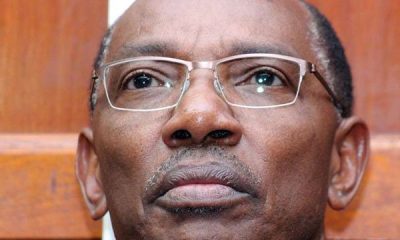
 Investigations1 week ago
Investigations1 week ago
 Business2 weeks ago
Business2 weeks ago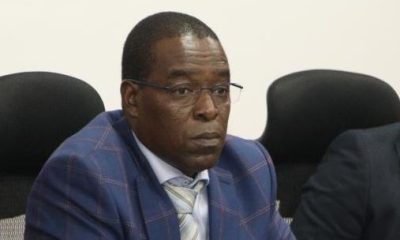
 Investigations1 week ago
Investigations1 week ago
 Investigations1 week ago
Investigations1 week ago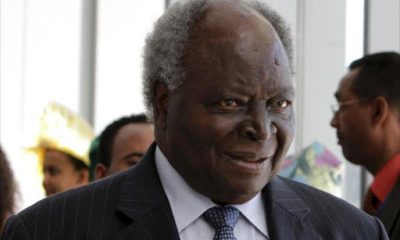
 Investigations1 week ago
Investigations1 week ago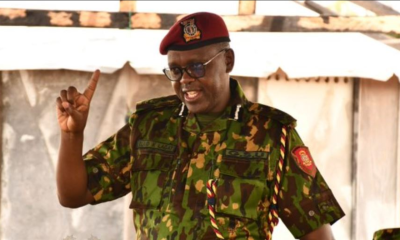
 Opinion2 weeks ago
Opinion2 weeks ago
 News2 weeks ago
News2 weeks ago
 Investigations1 week ago
Investigations1 week ago
